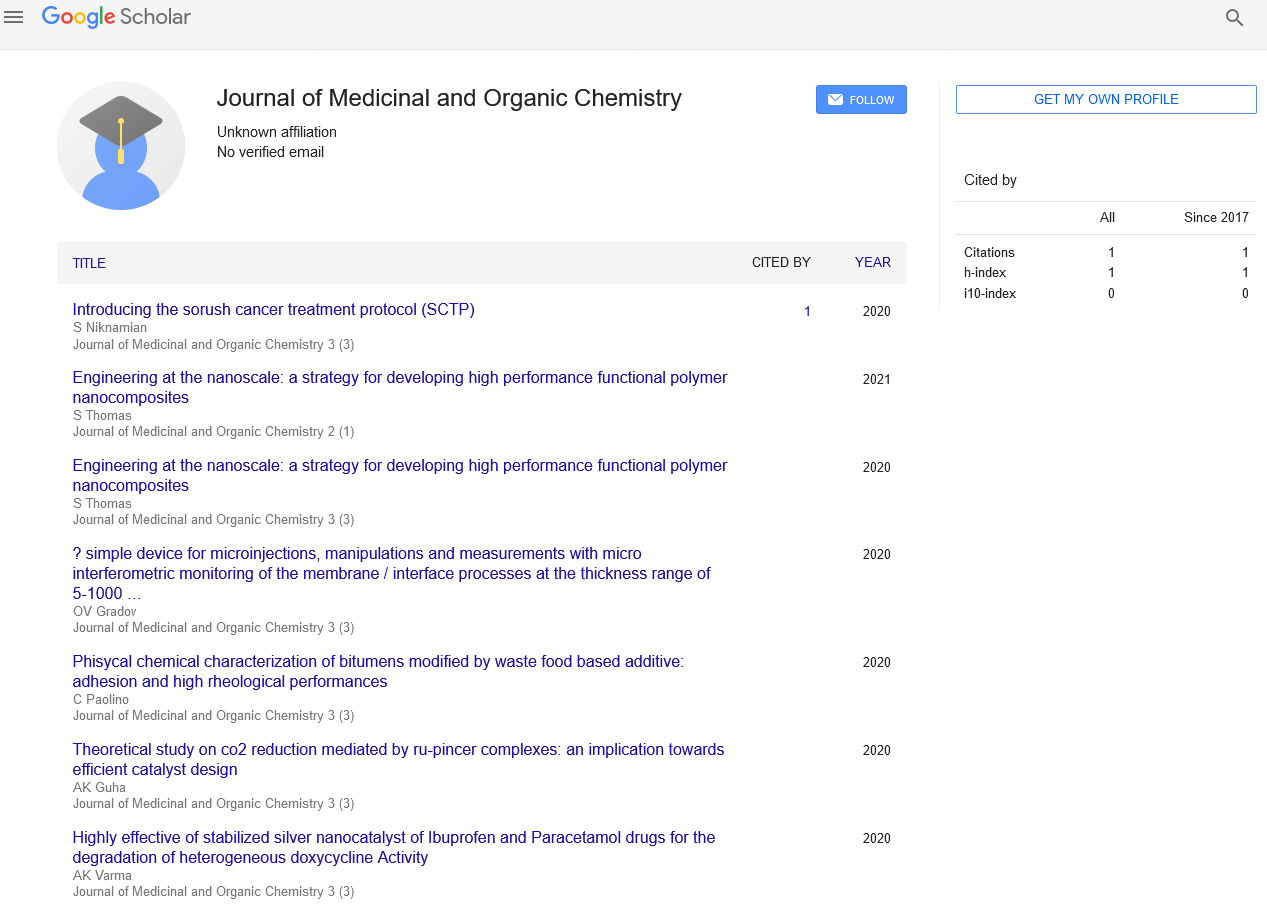Perspective - Journal of Medicinal and Organic Chemistry (2024) Volume 7, Issue 2
Unlocking the Intricacies of Immunology: Guardians of Health and Harmony
- Corresponding Author:
- Deepthi Wu
Department of Immunology,
Subina University,
Berlin,
Germany
E-mail: wudeepthi@suda.edu.cn
Received: 07-Mar-2024, Manuscript No. jmoc-24-129069; Editor assigned: 12-Mar-2024, PreQC No. jmoc-24-129069 (PQ); Reviewed: 26-Mar-2024, QC No. jmoc-24-129069; Revised: 11-Apr-2024, Manuscript No. jmoc-24-129069 (R); Published: 18-Apr-2024, DOI: 10.37532/jmoc.2024.7(2).181-182
Introduction
Immunology, the study of the immune system, stands as a bastion of defense against invading pathogens and a guardian of health and harmony within the body. This fascinating field of science delves into the intricate mechanisms that enable our immune system to recognize and combat foreign invaders while maintaining tolerance to self. From the discovery of immune cells to the development of vaccines and immunotherapies, immunology has revolutionized our understanding of infectious diseases, autoimmune disorders, and cancer, offering hope for the prevention and treatment of a myriad of ailments.
Description
The immune system: Nature’s defense force
The immune system is a complex network of cells, tissues, and molecules that work together to protect the body against harmful pathogens such as bacteria, viruses, and parasites. It comprises two main branches: The innate immune system, which provides rapid, nonspecific defense against a wide range of pathogens, and the adaptive immune system, which mounts a highly specific response tailored to the invading pathogen.
Key players in the immune system include white blood cells such as lymphocytes (T cells and B cells), phagocytes (macrophages, neutrophils, and dendritic cells), and specialized cells such as natural killer cells and mast cells. These cells collaborate through intricate signaling pathways to detect, neutralize, and eliminate foreign invaders while maintaining tolerance to the body’s own tissues.
The dance of immunity: Recognition and response
Central to the immune response is the ability to distinguish self from non-self-task accomplished through the recognition of molecular patterns characteristic of pathogens, known as Pathogen- Associated Molecular Patterns (PAMPs), by Pattern Recognition Receptors (PRRs) on immune cells. This recognition triggers a cascade of events leading to the activation of immune cells and the production of cytokines-molecules that regulate immune responses.
In adaptive immunity, T cells and B cells play a pivotal role in recognizing specific antigensmolecules unique to pathogens or foreign substances and mounting targeted responses to eliminate them. T cells orchestrate cell-mediated immunity, directly attacking infected cells or coordinating immune responses, while B cells produce antibodies that bind to and neutralize pathogens, marking them for destruction by other immune cells.
From pathogens to protection: Vaccines and immunization
Vaccines represent one of the most significant achievements of immunology, harnessing the power of the immune system to prevent infectious diseases. By exposing the body to harmless forms of pathogens or their antigens, vaccines stimulate the immune system to mount a protective response, priming it to recognize and eliminate the pathogen upon subsequent exposure.
The development of vaccines has led to the eradication or near-elimination of devastating diseases such as smallpox and polio, saving millions of lives worldwide. Ongoing research aims to expand the repertoire of vaccines against emerging infectious diseases and to enhance vaccine efficacy through novel delivery systems and adjuvants.
Immunology in disease: From autoimmunity to cancer
While the immune system serves as a bulwark against pathogens, dysregulation of immune responses can lead to autoimmune diseases, in which the immune system attacks the body’s own tissues. Disorders such as rheumatoid arthritis, multiple sclerosis, and type 1 diabetes result from a breakdown in immune tolerance, leading to chronic inflammation and tissue damage. On the other hand, the immune system plays a dual role in cancer, both suppressing tumor growth through immunosurveillance and promoting tumor progression through immune evasion mechanisms. Immunotherapy, which harnesses the power of the immune system to target and eliminate cancer cells, has emerged as a promising approach for cancer treatment, revolutionizing the field of oncology.
The future of immunology: Challenges and opportunities
As our understanding of immunology continues to deepen, new frontiers beckon, promising innovative approaches for preventing and treating diseases. Advances in immunogenomics, the study of how genetic variations influence immune responses, offer insights into personalized medicine and vaccine development, tailoring treatments to individual patients based on their genetic makeup.
In infectious disease research, efforts are underway to develop universal vaccines capable of conferring broad protection against a range of pathogens, as well as to combat antimicrobial resistance-a growing threat to global health. In autoimmune diseases and cancer, novel immunotherapies such as checkpoint inhibitors and Chimeric Antigen Receptor (CAR) T cell therapy hold promise for improving patient outcomes and achieving long-term remission.
Conclusion
In conclusion, immunology stands at the forefront of biomedical research, unraveling the mysteries of the immune system and unlocking new avenues for disease prevention and treatment. From vaccines that safeguard public health to immunotherapies that combat cancer, the impact of immunology reverberates across disciplines, offering hope for a healthier and more resilient future. As we navigate the challenges ahead, let us embrace the opportunities afforded by immunology to advance human health and well-being, guided by the principles of scientific inquiry, innovation, and compassion.

